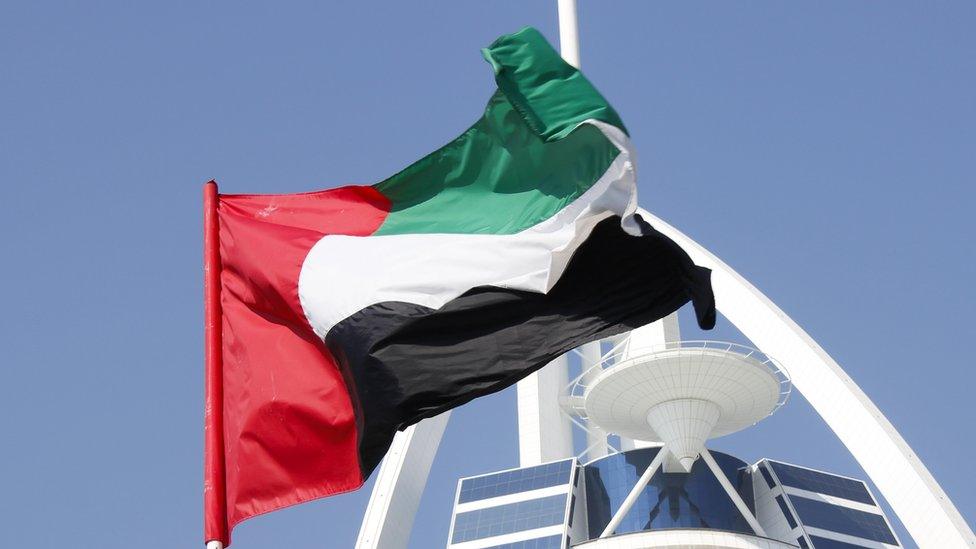Matthew Hedges: Who is the man at the centre of the spy row?
- Published
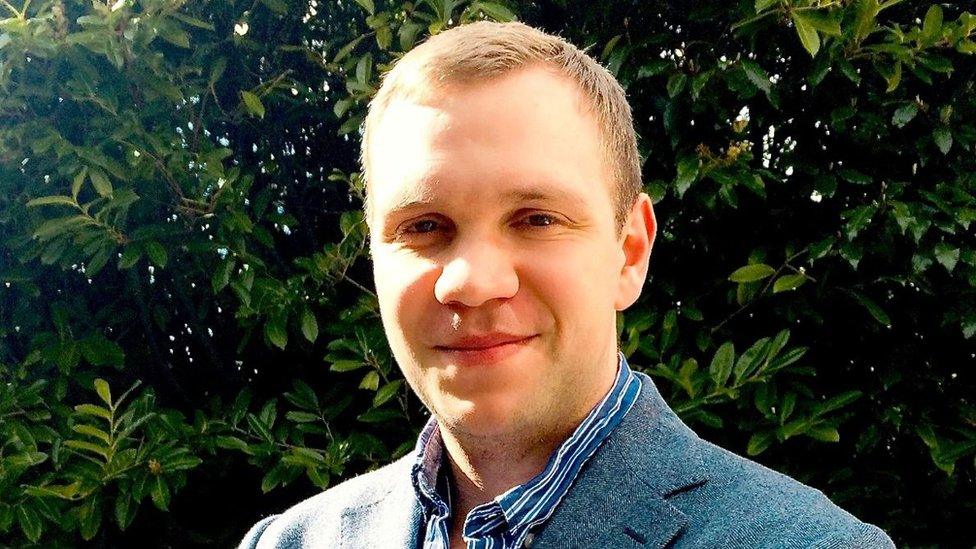
Matthew Hedges has written about defence, intelligence and the Middle East
Friends, family and colleagues of the British academic jailed in the United Arab Emirates after being accused of spying are united in one thing: They say he is not an intelligence agent. But who is he?
Matthew Hedges is no stranger to the Middle East. He had spent time there when he was younger and had worked in the region for several years.
But on a research trip for his PhD in May he was arrested.
On 21 November he was jailed for life for "spying for or on behalf of" the UK government, but he was granted a presidential pardon and freed five days later.
Here is what we know about the man who his family and friends insist is just an "innocent victim".

Who is Matthew Hedges?
The 31-year-old is a PhD student at Durham University but his status belies an established career in research and consultancy.
He describes himself as "an intelligence analyst at a cyber-intelligence firm in the UK" and has been an advisor for consultancy firm Gulf State Analytics since January 2016.
Corporate investigations, due diligence and research also appear in his areas of freelance consultancy expertise.
His research covers subjects such as defence, security, international affairs and military policy in the Middle East.
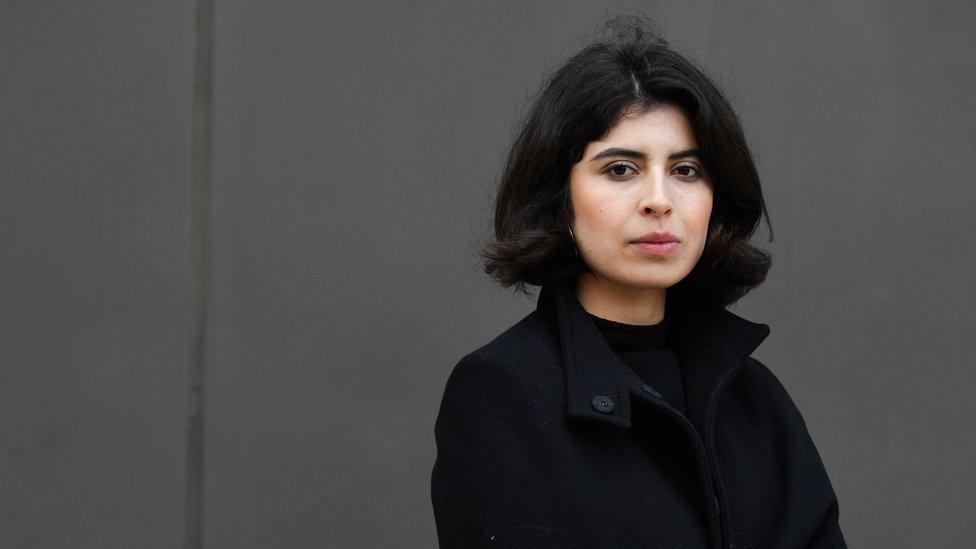
Daniela Tejada and Matthew Hedges are reported to have been married for two years
Since starting work on his PhD at Durham University he has been employed as an associate researcher at the university's Institute for Middle Eastern and Islamic Studies (IMEIS).
He is married to publicist Daniela Tejada who he reportedly met while studying at the University of Exeter.

What is his background?
Hedges was born in Surrey and went to the independent Cranleigh boarding school near Guildford.
He spent his school and university holidays in the UAE with his family who worked there.
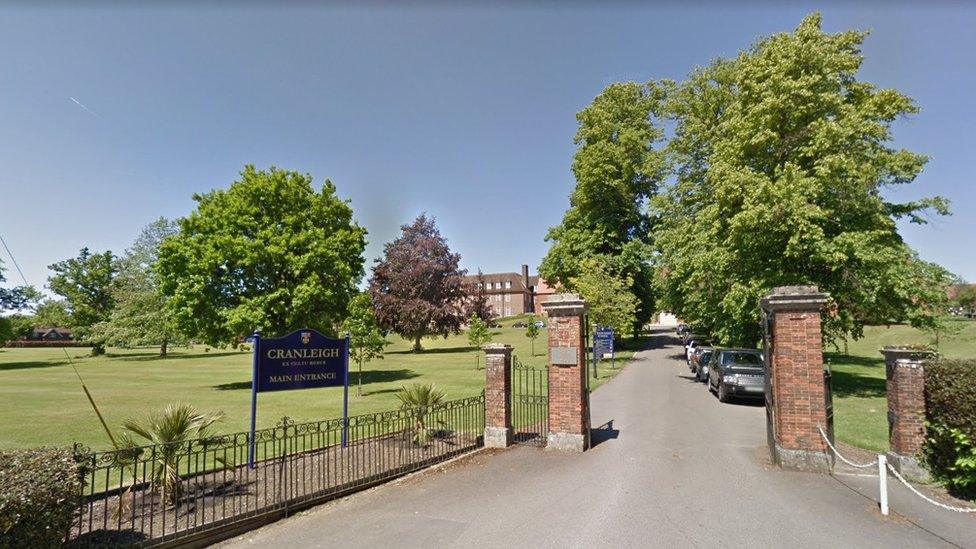
Hedges attended Cranleigh boarding school
Although relatives say he can neither speak nor read Arabic, his PhD supervisor in Durham said he "knew the country very well".
Prof Clive Jones said he was "very much a known face", certainly among the "Emirati political elite".
Many of those he went to the UAE to talk to for his PhD were people he knew personally or had worked for.
This area of the world has clearly piqued his interest.
Both his degree from the University of Bradford and his masters at the University of Exeter explored the Middle East and international relations.
His MA thesis was entitled "What has driven the UAE's military spending since 2001".

What was he doing before his arrest?
Latterly living in Exeter, Hedges has been a PhD student at Durham University since 2015, where he has been researching the effects of the Arab Spring on the Gulf states.
His specific interest is the region's "evolving national security strategy".
Other research interests including civil-military relations, Middle Eastern politics, security studies and political economy are listed in his Durham University biography.
In a joint statement with the University of Exeter, his university said there had been "no evidence whatsoever that Matt was conducting anything other than legitimate academic research" while in the UAE.
His thesis was nearly finished and had been carried out in "full accordance" with its research and ethics procedures, it said.

What work has he done?
Hedges has worked across the Middle East offering analysis on subjects such as defence, security, Gulf politics, international affairs and military capabilities.
His research has covered battlefield technology, external and defence expenditure, external in the UAE and political and military policy in the Middle East, external.
Defense News, Gulf States Newsletter, Military Balance and Defence Procurement International have all published his work.
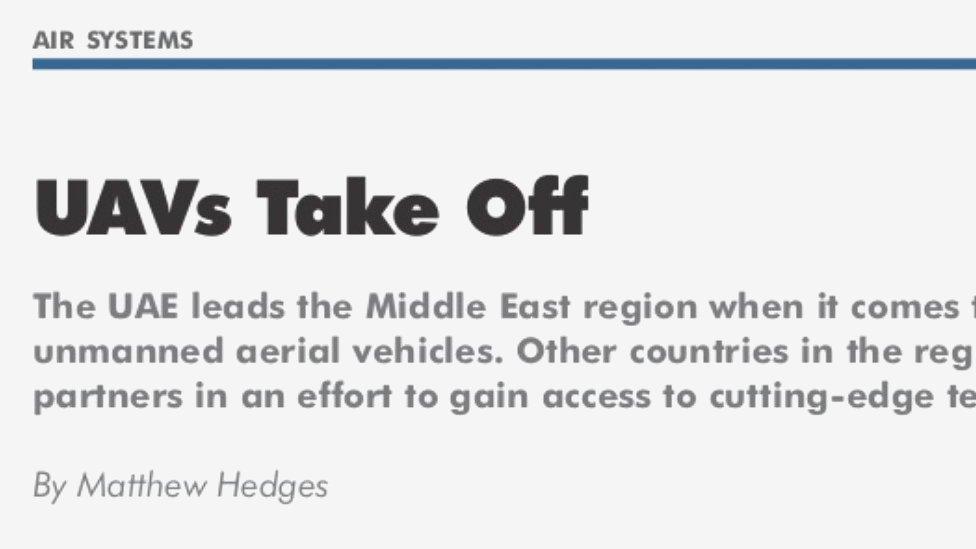
Matthew Hedges has published a number of pieces of research concerning the region
In March last year he wrote an article for the US-based Middle East Policy Council exploring the future of the Muslim Brotherhood and the Gulf Cooperation Council, external, of which the UAE is a member.
Hedges has also worked for Dubai thinktank the Institute for Near East and Gulf Military Analysis (INEGMA) and media services company Babylon Communications.
At Optimum Business Consultants he was involved in negotiations for natural resource extraction concessions in South-East Asia and West Africa.
- Published26 November 2018
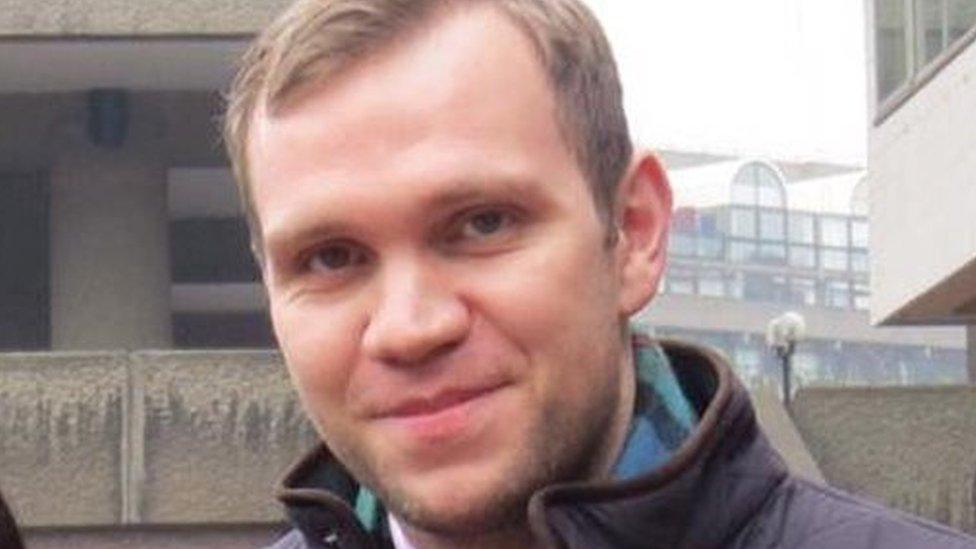
- Published23 November 2018
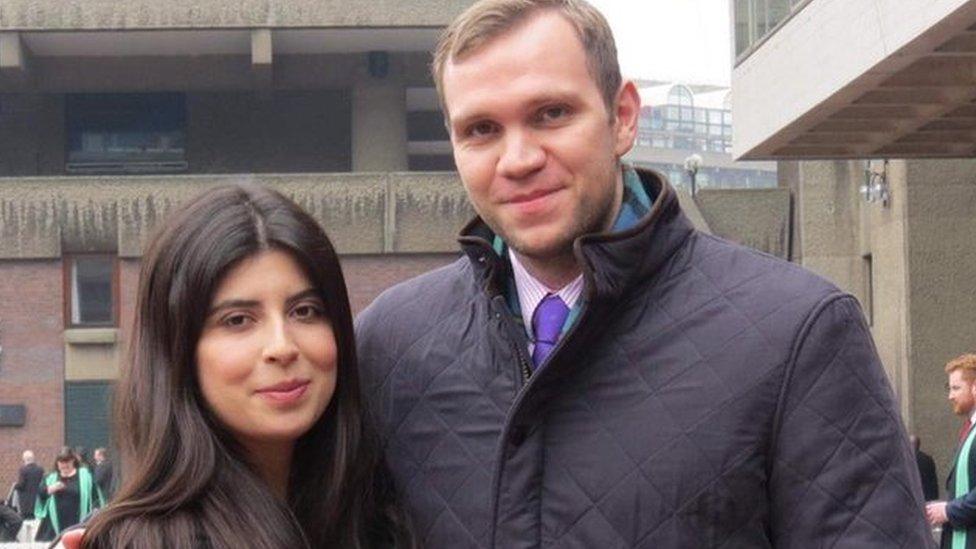
- Published22 November 2018

- Published21 November 2018
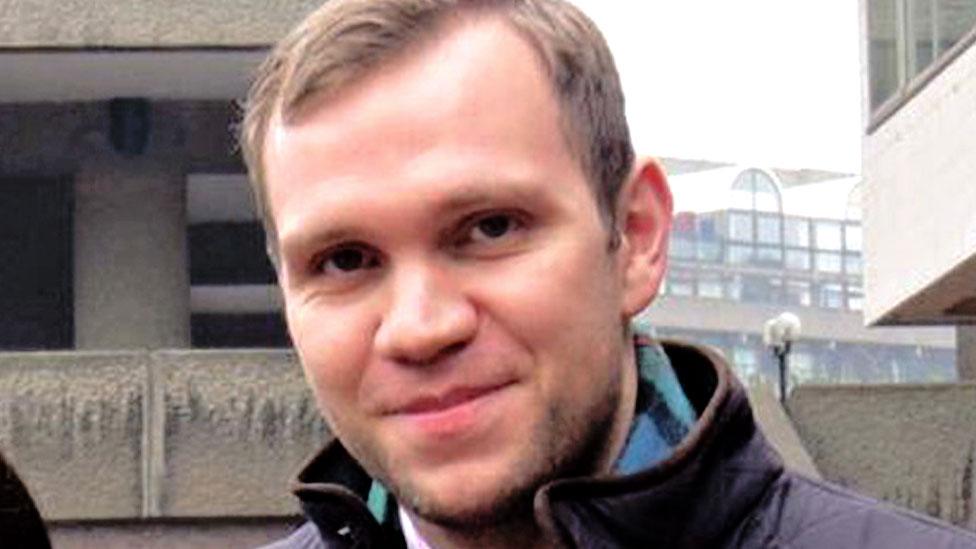
- Published21 November 2018
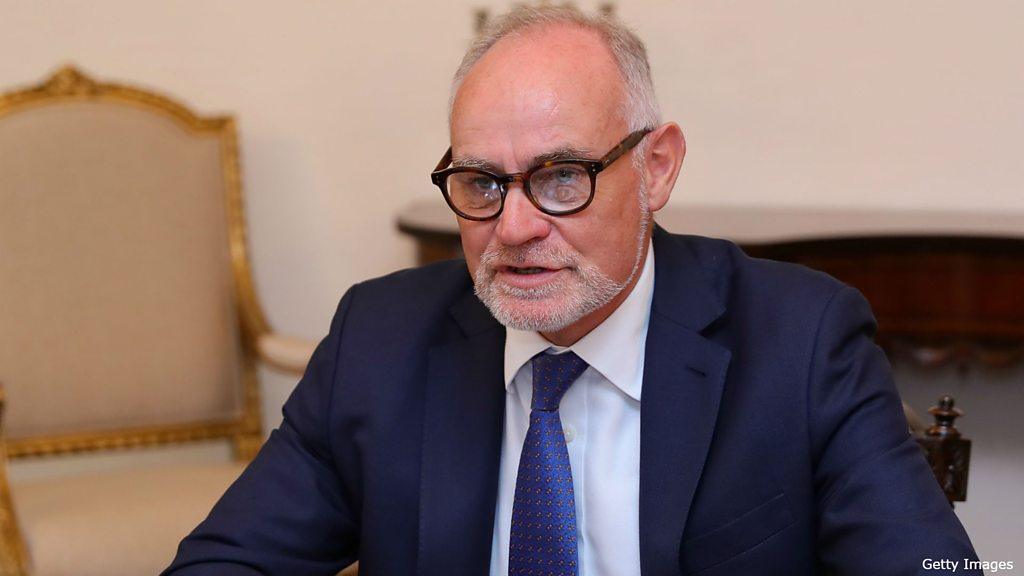
- Published21 November 2018
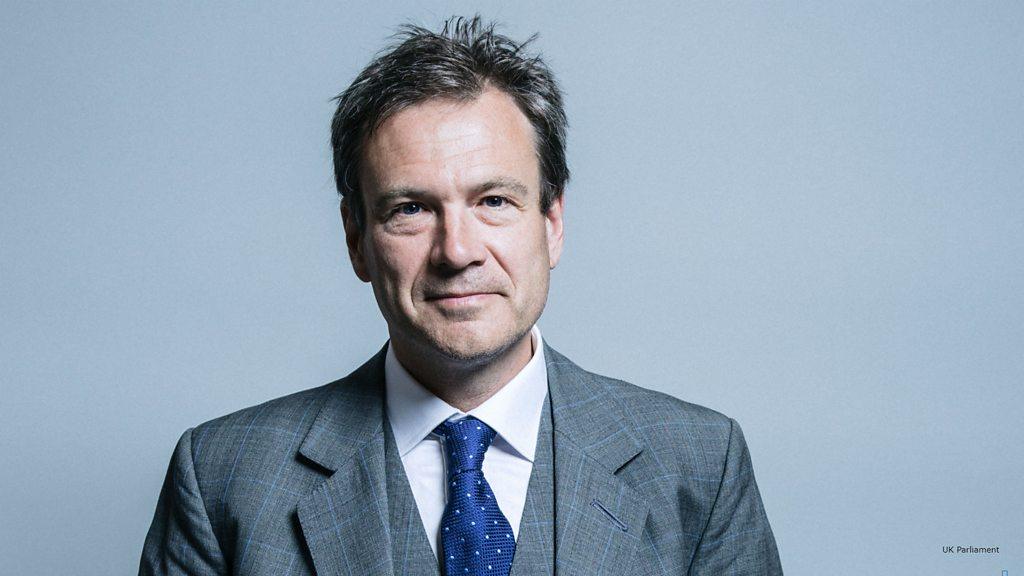
- Published22 November 2018
